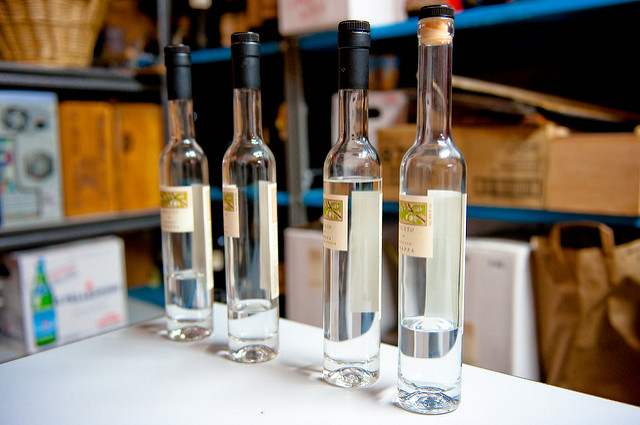Grappa: A Radical Success Story
 There was a time not too long ago when grappa, the popular Italian grape-based brandy, was considered a poor man’s drink. During the 1970s, grappa’s status was a sharp contrast to comparable foreign spirits, like cognac and whisky, both of which were considered higher quality alcohols. And yet, toward the end of the 1970s, perceptions of grappa shifted radically–grappa became not only a popular, more expensive spirit, but also one that was considered on par with cognac and whisky. This radical shift begs the question, how did grappa shed its bad reputation? In the recent article from Administrative Science Quarterly entitled “How Cinderella Became a Queen: Theorizing Radical Status Change,” authors Giuseppe Delmestri and Royston Greenwood explain that the grappa itself never changed. Rather, grappa producers took steps to break grappa from its prior image. The abstract for the paper:
There was a time not too long ago when grappa, the popular Italian grape-based brandy, was considered a poor man’s drink. During the 1970s, grappa’s status was a sharp contrast to comparable foreign spirits, like cognac and whisky, both of which were considered higher quality alcohols. And yet, toward the end of the 1970s, perceptions of grappa shifted radically–grappa became not only a popular, more expensive spirit, but also one that was considered on par with cognac and whisky. This radical shift begs the question, how did grappa shed its bad reputation? In the recent article from Administrative Science Quarterly entitled “How Cinderella Became a Queen: Theorizing Radical Status Change,” authors Giuseppe Delmestri and Royston Greenwood explain that the grappa itself never changed. Rather, grappa producers took steps to break grappa from its prior image. The abstract for the paper:
Using a case study of the Italian spirit grappa, we examine status recategorization—the vertical extension and reclassification of an entire market category. Grappa was historically a low-status product, but in the 1970s one regional distiller took steps that led to a radical break from its traditional image, so that in just over a decade high-quality grappa became an exemplar of cultured Italian lifestyle and held a market position in the same class as cognac and whisky. We use this context to articulate “theorization by allusion,” which occurs through three mechanisms: category detachment—distancing a social object from its existing category; category emulation—presenting that object so that it hints at the practices of a high-status category; and category sublimation—shifting from local, field-specific references to broader, societal-level frames. This novel theorization is particularly appropriate for explaining change from low to high status because it
avoids resistance to and contestation of such change (by customers, media, and other sources) as a result of status imperatives, which may be especially strong in mature fields. Unlike prior studies that have examined the status of organizations within a category, ours foregrounds shifts in the status and social meaning of a market category itself.
You can read “How Cinderella Became a Queen: Theorizing Radical Status Change” from Administrative Science Quarterly free for the next two weeks by clicking here. Want to know all about the latest research from Administrative Science Quarterly? Click here to sign up for e-alerts!
During the month of April, you can access 1.5 million article across SAGE Publishing’s 940+ journals for free–how? Sign up here for free trial access!






























































































